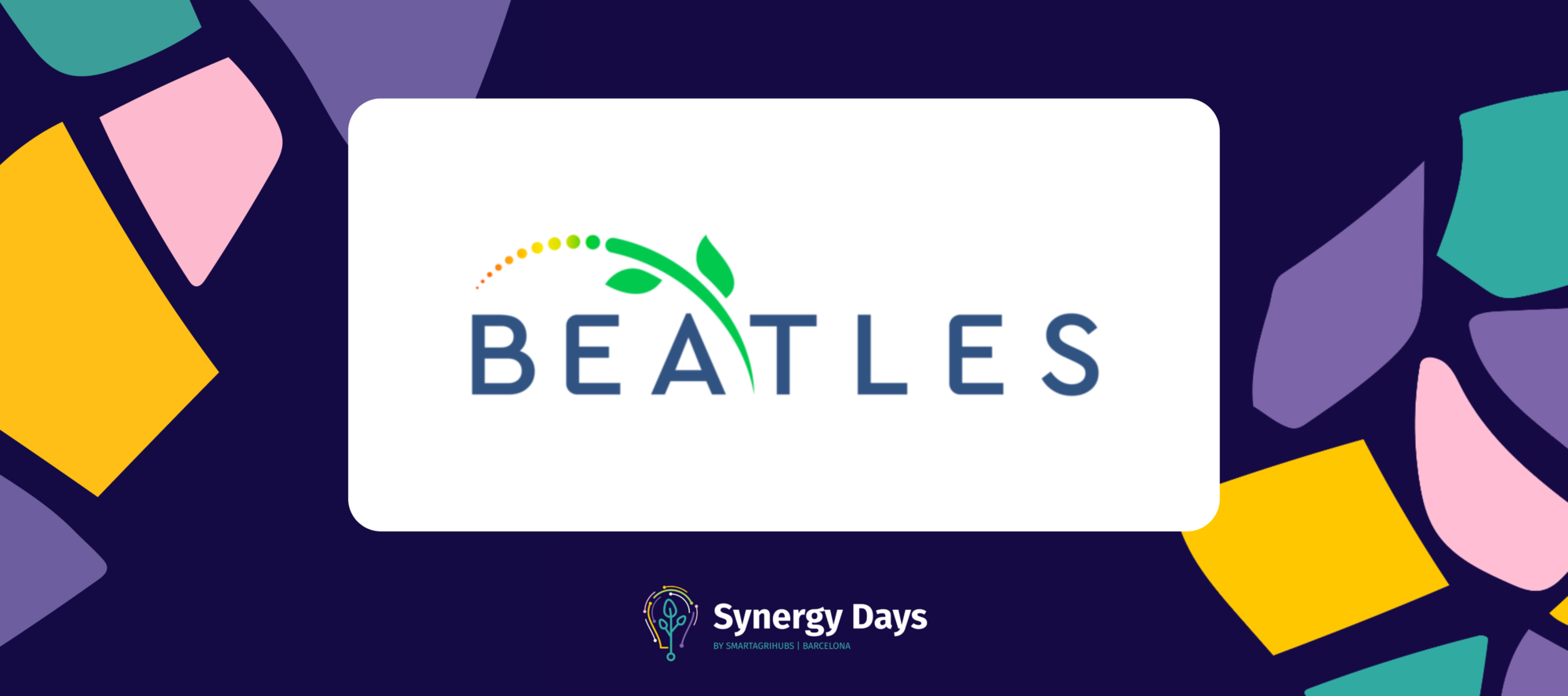Synergy Days 2024 projects: BEATLES

Synergy Days is designed to celebrate and showcase European research projects that are transforming the European agri-food sector. Who are they, and how are they using digital technology to innovate the sector? We spoke to BEATLES to learn more about the project, its goals and journey.
About BEATLES
BEATLES aspires to identify the individual, systemic and policy lock-ins and levers that influence entire food systems behavioural change and to develop transformation pathways of change to accelerate the systemic and systematic transition to climate-smart agriculture and smart farming technologies, fully aligned with the ambitions of the Farm to Fork and Biodiversity Strategies, and the new CAP at regional and EU levels.
Learn more on their website.
What inspired the creation of your project?
The inspiration for our project stems from the urgent need to address the complex challenges that global food system faces. The need for a more resilient and self-sufficient food system has become increasingly critical. Despite significant policy efforts by the European Commission and global institutions to promote sustainability, such as the European Green Deal and the CAP, the adoption of sustainable practices in agriculture remains limited and below desired levels. Inspired by the behavioural sciences, innovation and change management, and fairness theories, The BEATLES aspires to understand the lock-ins and levers for transitioning towards fair and sustainable food systems. Our goal is to drive behavioural shifts towards climate-smart agriculture and smart farming technologies. These transformative pathways are expected to boost the adoption and expansion of climate-smart agricultural technologies among the agri-food systems actors through fair business strategies and policy changes.
Can you share some of the key milestones or successes your project has achieved to date?
At the heart of BEATLES is participatory behavioural and experimental research. One of our key successes so far has been the engagement of a diverse group of stakeholders, from farmers and advisors over to industry stakeholders, researchers, consumers, and policymakers across five (5) countries. Together with the stakeholder, we have co-created fair strategies and already identified opportunities and barriers on the road to more climate-smart farming and sustainable agriculture.
At this stage, we are running experiments to find out meaningful ways to spark behavioural change. For instance, we have already run three consumer lab experiments to identify successful behavioural interventions to promote purchases of climate-friendly products.
The project was very successful in conducting farmer and consumer survey to identify market segments, which will then be used in tailoring the policy recommendations. A set of fair business models will be produced by the end of the project while policy recommendations are co-created with the participation of various EC services in our multi-actor policy working groups. As we progress with our experiments, we believe to come up with interesting findings that can help driving improvements in business models, policy and practice, supporting a smoother transition to sustainable food systems.
Being funded under RIA, the project has been very successful in academic publications. We have published 5 articles in highly impactful academic journals and a book chapter forthcoming.
What innovative technologies or methods are you most excited about within your project?
Our interdisciplinary and participatory approach using co-creation methods to behavioural research is something we are excited about. By bringing together social science researchers, engineers with expertise in smart farming technologies, farmers, practitioners, and consumers, we aim to unravel the complex decision-making processes within food systems. This collaboration also helps identify context-specific barriers and opportunities for adopting climate-smart practices.
Another innovation we introduce is the policy innovation. Usually, the policy design follows a one-size-fits-all approach, thus do not account for market heterogeneity and market segmentation. The BEATLES uses innovative methods to provide evidence on how policies can be tailored by the target segments.
In addition, fair value propositions across all stakeholders will adequately capture the conflicting interests and benefit to all value chain stakeholders. The fairness approach relies on collaborative, multisectoral, and transdisciplinary efforts of stakeholders working at regional, national, and European levels, and will ensure that fairness is achieved across the value chain to reduce resistance and foster commitment to change towards climate-smart food systems.
What advice would you give to other innovators looking to make an impact in the agricultural / food sector through digital technologies?
It’s crucial to start by understanding the specific needs and challenges of the agri-food value chain actors. Design solutions that integrate smoothly with existing practices to encourage adoption and focus on scalability to ensure that your technology can adapt to various contexts. Fostering collaboration among stakeholders within the value chain can provide valuable insights and support for the transition to sustainable agriculture.
What is the added value of Synergy Days for your project?
Synergy Days offer significant added value for BEATLES. Firstly, they provide exceptional networking opportunities, allowing us to connect with key stakeholders, industry leaders, and experts in the field. This networking can lead to valuable collaborations and partnerships that might not have been possible otherwise.
Secondly, Synergy Days facilitate the discovery of potential synergies with other relevant projects. By engaging with a diverse group of initiatives, we can identify areas of overlap and mutual benefit, leading to more integrated and effective solutions across the sector.
Lastly, the event is a prime opportunity for gaining and transferring knowledge about new sustainable solutions. Attendees can learn about advancements and innovations used in the field, which may inspire new ideas and approaches for our own work. Sharing our own insights also helps advance the broader community's progress.
Want to meet them and learn more about the project? Join BEATLES at Synergy Days 2024! More details and how to register.